The weakness of Vietnamese press agencies is the lack of data on reader profiles and customer behavior analysis data... Director of the Institute for Policy Studies and Media Development (IPS), Mr. Nguyen Quang Dong emphasized this at the discussion session "Artificial intelligence and digital transformation strategies of Vietnamese press offices," within the framework of the National Press Forum, on the morning of June 20 in Hanoi .
In particular, experts, managers, and editorial leaders also warned that digital transformation of journalism cannot stop at using artificial intelligence (AI) tools spontaneously, without direction and overall strategy.
Practical application of AI in press agencies
Deputy Director of the Institute of Blockchain and Artificial Intelligence (ABAII), and moderator of the discussion, Master Dao Trung Thanh affirmed that digital transformation is no longer an option, but a condition for the survival of newsrooms in the technology era. The advent of AI has not only changed the way news and articles are written, but also shaped the behavior of receiving and distributing information. Therefore, the Vietnamese press needs to determine a clear, flexible and responsible direction.
Reality shows that artificial intelligence (AI) is opening up unprecedented opportunities for Vietnamese press and media, from improving content quality to increasing social impact, helping newsrooms quickly adapt to the digital age and meet the public's increasing information needs.
Director of the Institute for Policy Studies and Media Development (IPS), Mr. Nguyen Quang Dong, said that the rate of press agencies that have been applying AI or have plans to apply it has doubled compared to 2023, reaching more than 60% in 2024.
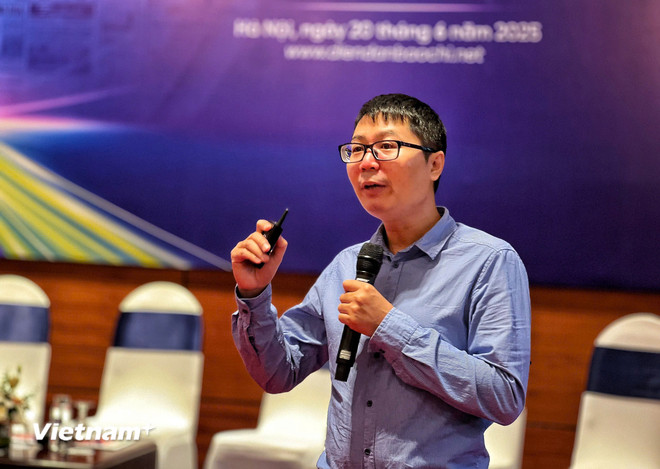
Most of the surveyed press agencies have used AI tools such as ChatGPT, Gemini, Copilot and internal software in the content production stages, from suggesting, editing headlines and summarizing information, editing, checking spelling, creating images/ videos or translating. However, the current application is still fragmented, lacking strategic vision, mainly operating spontaneously and personalized. The investment cost for AI of newsrooms is still very low, mostly under 1 million VND/month or using the free version.
Mr. Nguyen Quang Dong pointed out three major problems that are hindering the effective application of AI in current newsrooms: Misplaced focus on AI application (focusing on content production instead of solving business model problems...); lack of overall strategy at the organizational level (very few newsrooms have official internal policies on the use of AI, which poses a great risk of fake news and loss of reputation); lack of financial resources and AI-savvy human resources.
The expert also warned of the risk of losing readers as information access behavior is gradually shifting from search engines to synthetic AI platforms; the continuous decline in advertising revenue poses an urgent need to innovate the newspaper business model in the digital age.
To address the above challenges, Mr. Nguyen Quang Dong cited the model of The Globe and Mail (Canada). The use of the AI model they established to evaluate content value, personalize, and optimize paywalls has brought impressive results in both revenue and new subscriptions.
“Newsrooms need to have a comprehensive application strategy, technology investment strategy, and clear internal policies. In particular, risk management and ethics in the use of AI are essential. The Vietnam Journalists Association needs to issue a set of rules for the responsible use of AI for the entire industry,” Mr. Nguyen Quang Dong emphasized.
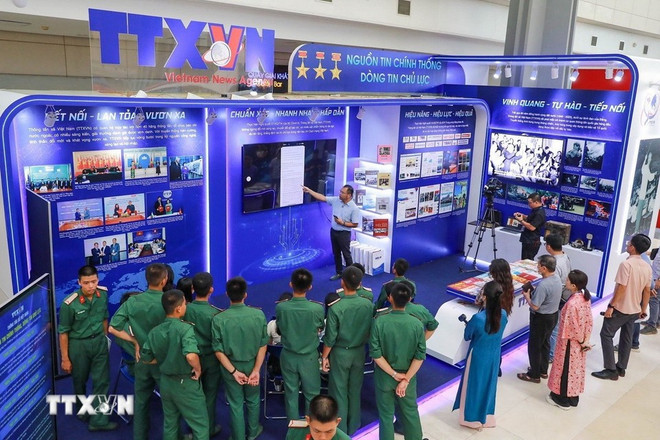
Experience in mastering technology and controlling data
Sharing practical experience in building and applying localized AI solutions in journalism, from content production, content personalization and improving interaction efficiency with Vietnamese readers, VnEconomy General Director Dao Quang Binh said that the editorial office has successfully developed its own AI tool called Askonomy.
VnEconomy's strategy is particularly different because it has developed its own proprietary AI models, instead of relying entirely on AI generators like ChatGPT. According to Mr. Dao Quang Binh, all data used to train VnEconomy's AI is internal data of the editorial office, and AI-generated content is only based on existing data or newly provided documents, not based on any content generated by external AI. This helps VnEconomy both solve the concern about fake news and ensure that the content always adheres to the editorial office's tone and viewpoint.
Askonomy has been integrated into the CMS system by the editorial office, which can process content at high speed, read and understand text with 95% accuracy in just 7 seconds, reducing the workload for editors and tightly controlling content.
“I used the analogy that instead of being a ‘dinosaur’ like ChatGPT, we only need to be a small but effective ‘ant’. Therefore, we built a model that only focuses on economic language, with two languages: Vietnamese and English,” Mr. Dao Quang Binh shared.
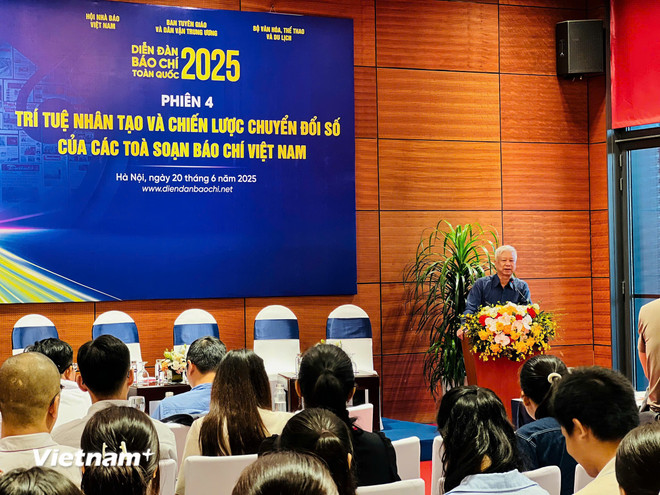
In addition, Vietnam Economic Magazine also developed the Asko Platform, opening up a separate direction for technology-independent newsroom models.
Meanwhile, from his actual operations, Baomoi.com founder Nguyen Anh Tuan said that it is the ability to analyze user behavior and suggest appropriate news articles that has helped Baomoi maintain its connection with young readers, who are always "trend-catching" and very easy to "change channels" on the internet.
“AI does not replace humans, but if properly integrated, it will help editors make faster, smarter decisions,” said Mr. Nguyen Anh Tuan.
Need for a “media immune system” against AI
Chairman of DIBIZ Company specializing in cybersecurity and anti-misinformation, Mr. Dinh Toan Thang analyzed the risk of disinformation being spread intentionally to deceive and cause harm created by AI, and emphasized that establishing a "media immune system" is essential for newsrooms.
Mr. Dinh Toan Thang pointed out that “Disinformation” in Vietnam today is fraudulent fee collection, selling functional foods/false advertising, and spreading fake/distorted political news. The solution that this expert proposed is to use AI and information verification tools such as Google Fact-Check, and at the same time expand the verification process to photos, audio and video, to combat the problem of “Disinformation.”
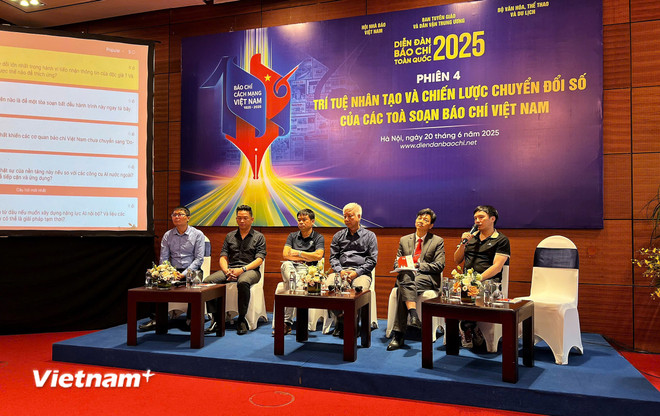
This technology expert also emphasized the trend of combining AI with watermark encryption technology, multi-layer data signing and DRM (digital rights management) technology to protect press content from the risk of being copied and misquoted.
It can be seen that successful digital transformation is not just about applying technology, but must be a comprehensive strategy, focusing on people and journalistic values. AI is opening up great opportunities for the press, being an "extended arm" but also posing many challenges.
According to Master Dao Trung Thanh, to effectively deploy AI, newsrooms need to build a long-term strategy based on three core factors: choosing the right technology; developing human resources that understand both journalism and technology; and setting ethics as the foundation for all deployment decisions.
Because in the AI era, although we need to be quick on technology, professional ethics must still be respected to maintain readers' trust. Only by doing so can newsrooms move quickly and far./.
Source: https://www.vietnamplus.vn/tri-tue-nhan-tao-canh-tay-noi-dai-day-thach-thuc-cua-bao-chi-viet-nam-post1045397.vnp



![[Photo] National Assembly Chairman Tran Thanh Man attends the VinFuture 2025 Award Ceremony](/_next/image?url=https%3A%2F%2Fvphoto.vietnam.vn%2Fthumb%2F1200x675%2Fvietnam%2Fresource%2FIMAGE%2F2025%2F12%2F05%2F1764951162416_2628509768338816493-6995-jpg.webp&w=3840&q=75)

![[Photo] 60th Anniversary of the Founding of the Vietnam Association of Photographic Artists](/_next/image?url=https%3A%2F%2Fvphoto.vietnam.vn%2Fthumb%2F1200x675%2Fvietnam%2Fresource%2FIMAGE%2F2025%2F12%2F05%2F1764935864512_a1-bnd-0841-9740-jpg.webp&w=3840&q=75)


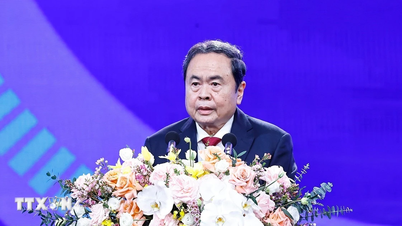
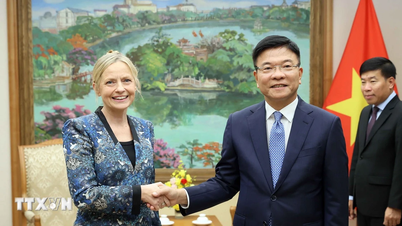
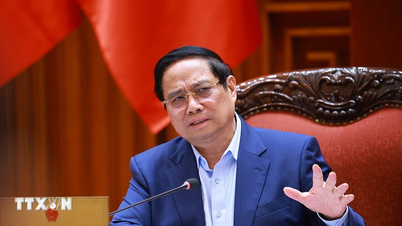


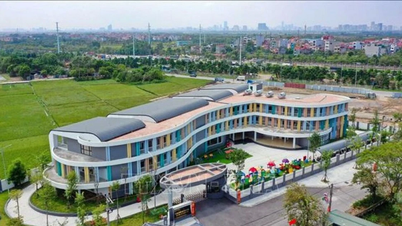
















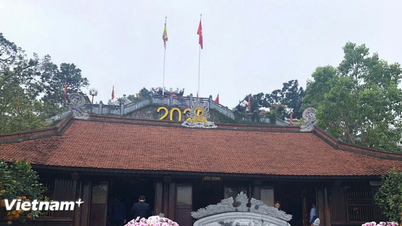


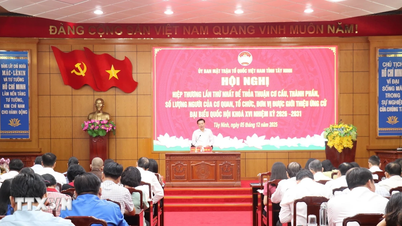









































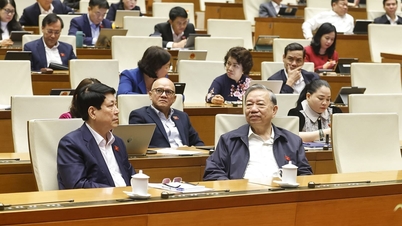













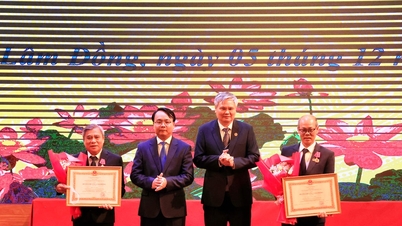
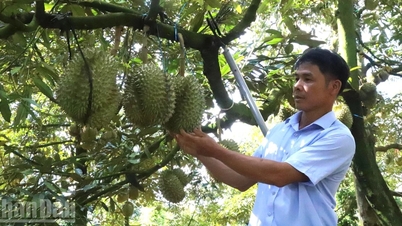


















Comment (0)